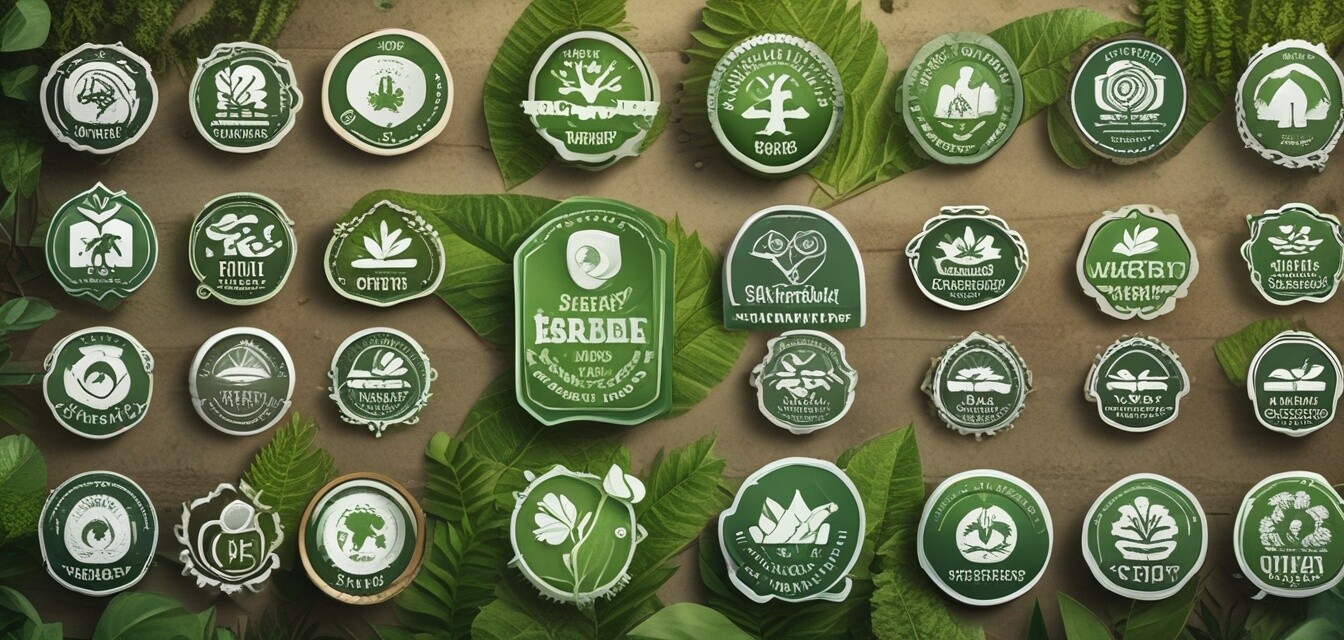
The role of sustainability certifications in protein brands
In today's market, the demand for environmentally and ethically sourced products is on the rise. This trend is especially prominent in the dietary supplement sector, particularly for protein brands. Understanding sustainability certifications can empower consumers to make informed choices when selecting protein supplements that are not only good for their health but also kind to the planet.
Key Takeaways
- Sustainability certifications ensure that brands meet specific environmental and ethical standards.
- They are vital for making informed choices in the protein supplement market.
- Different certifications focus on various aspects of sustainability, including sourcing, production, and packaging.
- Brands with credible certifications often prioritize transparency and responsibility.
- Understanding and recognizing these labels can lead to more sustainable purchasing decisions.
What are sustainability certifications?
Sustainability certifications are third-party evaluations that assure consumers that a product meets certain environmental and ethical standards. These certifications often cover various aspects of a product's life cycle, from sourcing raw materials to production and packaging. In the protein supplement industry, these labels can provide insights into how sustainably a product is made.
Importance of sustainability certifications
The increasing consumer awareness surrounding sustainability has led many brands to pursue certifications. Here are a few reasons why sustainability certifications are essential:
- Trust and Transparency: Certifications often signify that a brand is committed to sustainable practices and willing to undergo rigorous evaluations.
- Consumer Guidance: With so many options on the market, certifications help consumers quickly identify brands that align with their values.
- Encouraging Ethical Practices: Brands that obtain certifications often influence others to adopt sustainable practices, fostering a more responsible industry.
- Impact on Purchasing Decisions: Consumers are increasingly favoring certified products, which can drive brands to prioritize sustainability.
Common sustainability certifications to look for
Understanding the various sustainability certifications available can help consumers make educated choices. Here are some of the most recognized certifications in the protein brand space:
| Certification | Focus Area | Details |
|---|---|---|
| USDA Organic | Agricultural Practices | Ensures that the product is made from organic ingredients and has been produced without harmful pesticides or synthetic fertilizers. |
| Non-GMO Project Verified | Genetic Modification | Certifies that the product contains no genetically modified organisms (GMOs). |
| Fair Trade Certified | Labor Practices | Provides assurance that the product was produced according to fair labor practices that prioritize the welfare of workers. |
| Marine Stewardship Council (MSC) | Fisheries Sustainability | Indicates that the fish used in supplements was sourced from sustainable fisheries. |
| Rainforest Alliance Certified | Environmental Sustainability | Focuses on sustainable agriculture, forestry, and tourism, ensuring products contribute positively to ecosystems. |
How to recognize credible certifications
With the plethora of certifications available, not all may carry the same weight. Here are tips on how to recognize credible certifications:
- Research the certifying body: Check if the organization behind the certification is reputable and known for its standards.
- Understanding their criteria: Look into what standards the certification organization requires for a brand to achieve its seal of approval.
- Stay informed about updates: Certifications may evolve; check if a brand is meeting the latest standards.
- Look for transparency: Brands that are open about their certification processes generally build more trust with consumers.
Choosing sustainable protein supplements
When searching for protein supplements, here are some key considerations to help guide your choices:
- Read labels: Always check the product packaging for sustainability certifications.
- Research brands: Investigate the brand's commitment to sustainability and ethical sourcing practices.
- Compare certifications: Different certifications focus on various sustainability aspects; choose products that align with your values.
- Impact over price: While some certified products may cost more, consider long-term benefits to health and the environment.
- Stay informed: Keep updating your knowledge regarding sustainable brands and practices through resources like sustainability tips.
Beginners Section: Tips for Choosing Sustainable Supplements
- Start with a few key certifications to remember, such as USDA Organic and Non-GMO Project Verified.
- Use resources to compare brands and their sustainability ratings.
- Join forums or communities that discuss sustainable practices.
- Don't hesitate to reach out to brands to ask about their practices.
- Consider supporting local brands with strong sustainability stories.
The future of sustainability in protein brands
As consumers become more environmentally conscious, the protein supplement industry will likely continue evolving towards greater sustainability. Emerging brands are prioritizing responsible sourcing and eco-friendly practices, which may lead to a broader range of certified options for consumers.
Embracing sustainability certifications can significantly influence buying decisions and promote more ethical practices within the industry. Keep your eye on emerging trends and innovations, and stay informed to make choices that impact the planet positively.
Pros
- Enhances consumer trust
- Encourages ethical business practices
- Supports environmental conservation
- Promotes transparency in manufacturing
Cons
- Some certifications can be misleading or not rigorous
- Higher costs for certified products
- Complexity in understanding various certifications
- Limited certified options in certain regions
Understanding sustainability certifications is a powerful tool for consumers passionate about making more eco-friendly choices in their protein supplements. By choosing wisely, you can contribute to a more sustainable future.
For more insights into choosing protein supplements, visit our protein supplements category or check our buying guides for more detailed advice.